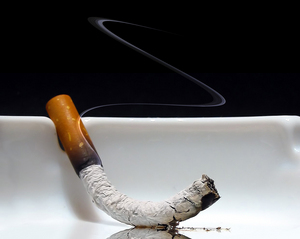Even more reason to support giving up smoking has been published in a study from the Monell Chemical Senses Center. This new study took a look at the effects of nicotine in breast milk on babies sleeping abilities.
The study found that mothers who were smokers passed nicotine onto their breastfeeding children through breast milk causing the babies sleep to be disrupted. As a result of these new findings more questions have arisen about the effects nicotine in breast milk is having on a babies’ development.
The results of this study have just been published in ‘Paediatrics’.
The head author of the study Julia A. Mennella PhD, a Monell psychologist said, “Infants spent less time sleeping overall and woke up from naps sooner when their mothers smoked prior to breastfeeding.
It is widely know that smoking during pregnancy can be harmful to the health of a unborn child leading to most women quitting smoking while pregnant or cutting down. However, after they give birth many of these women pick the habit back up again. Nicotine in breast milk has not been taken seriously in the past and because of this many new mothers may not think it being present in their breast milk is causing any harm to their children. The mother may feel that so long as they are not exposing their child to cigarette smoke it is OK.
This new study attempts to fill the gap in an area that has been neglected. It is known that nicotine can result in developmental problems in the brain which in the long t term can lead to learning and behavioral problems.
The study observed 15 babies between 2 and 7 months old, that were being breastfeed for periods of 3 and a half hours on two different days. Each mother that was used in the study was a smoker. Before each observation session the mother was asked not to smoker for the previous 12 hours.
For one of the sessions each mother was asked to smoke between 1 and 3 cigarettes just before the start of the observations and for the other session did not smoke any cigarettes. Children were then breastfeed when they were hungry over the 3 and a half hour period.
It was found that when the mothers smoked the sleep of the children was disrupted totalling 53 minutes compared to 83 minutes when the mother did not smoke. It was also found that during the session where the mother smoked, the length of sleeping times was shortened.
As a result of these findings Mennella suggests that exposing a child early to the taste of tobacco through breast milk could potentially increase that child’s chances of smoking when older.
The findings also highlight that this area is in need of further research and that breastfeeding mothers need programmes to help them give up smoking.
Sources
Monell Chemical Senses Center Press release
Monell Center



